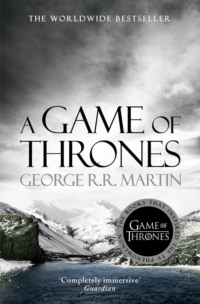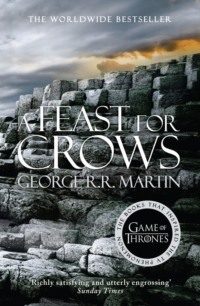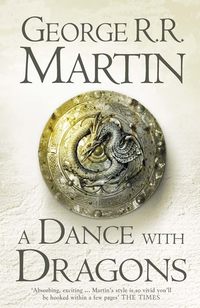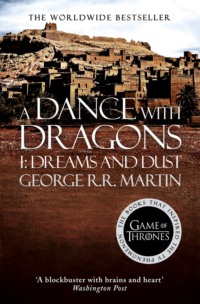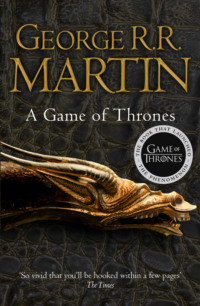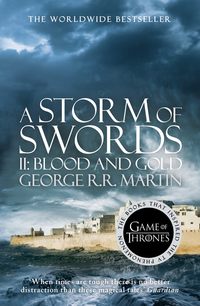
Полная версия

A DANCE WITH DRAGONS
PART ONE: DREAMS AND DUST
BOOK FIVE OF
A Song of Ice and Fire
GEORGE R.R. MARTIN

Copyright
HarperVoyager
An imprint of HarperCollinsPublishers
1 London Bridge Street
London SE1 9GF
www.harpervoyagerbooks.com
Previously published in paperback by Voyager 2012
First published in Great Britain by Voyager in 2011
Copyright © George R.R. Martin 2011
Cover illustration © Larry Rostant. Cover layout design © HarperCollinsPublishers 2019
Game of Thrones™ The Original Series based on A Song of Ice and Fire books by George R.R. Martin © 2011 Home Box Office, Inc.
All Rights Reserved. HBO and related service marks are the property of Home Box Office, Inc.
George R.R. Martin asserts the moral right to be identified as the author of this work
A catalogue record for this book is available from the British Library
This novel is entirely a work of fiction. The names, characters and incidents portrayed in it are the work of the author’s imagination. Any resemblance to actual persons, living or dead, events or localities is entirely coincidental.
All rights reserved under International and Pan-American Copyright Conventions. By payment of the required fees, you have been granted the non-exclusive, non-transferable right to access and read the text of this e-book on-screen. No part of this text may be reproduced, transmitted, down-loaded, decompiled, reverse engineered, or stored in or introduced into any information storage and retrieval system, in any form or by any means, whether electronic or mechanical, now known or hereinafter invented, without the express written permission of HarperCollins.
Source ISBN: 9780007466061
Ebook Edition © March 2012 ISBN: 9780007482900
Version: 2019-03-14
this one is for my fans
for Lodey, Trebla, Stego, Pod,
Caress, Yags, X-Ray and Mr. X,
Kate, Chataya, Mormont, Mich,
Jamie, Vanessa, Ro,
for Stubby, Louise, Agravaine,
Wert, Malt, Jo,
Mouse, Telisiane, Blackfyre,
Bronn Stone, Coyote’s Daughter,
and the rest of the madmen and wild women of
the Brotherhood Without Banners
for my website wizards
Elio and Linda, lords of Westeros,
Winter and Fabio of WIC,
and Gibbs of Dragonstone, who started it all
for men and women of Asshai in Spain
who sang to us of a bear and a maiden fair
and the fabulous fans of Italy
who gave me so much wine
for my readers in Finland, Germany,
Brazil, Portugal, France, and the Netherlands
and all the other distant lands
where you’ve been waiting for this dance
and for all the friends and fans
I have yet to meet
thanks for your patience
Contents
Cover
Title Page
Copyright
Dedication
A Cavil on Chronology
Maps
Prologue
Tyrion
Daenerys
Jon
Bran
Tyrion
The Merchant’s Man
Jon
Tyrion
Davos
Jon
Daenerys
Reek
Bran
Tyrion
Davos
Daenerys
Jon
Tyrion
Davos
Reek
Jon
Tyrion
Daenerys
The Lost Lord
The Windblown
The Wayward Bride
Tyrion
Jon
Davos
Daenerys
Melisandre
Reek
Tyrion
Bran
Jon
Daenerys
The Prince of Winterfell
The Watcher
Jon
Tyrion
Appendix: The Kings and their Courts
The Boy King
The King at the Wall
King of the Isles and the North
Other Houses Great and Small
House Arryn
House Baratheon
House Frey
House Lannister
House Martell
House Stark
House Tully
House Tyrell
The Sworn Brothers of the Night’s Watch
The Wildlings, or the Free Folk
Beyond the Wall
Essos Beyond the Narrow Sea
In Braavos
In Old Volantis
On Slaver’s Bay
The Queen Across the Water
The Sellswords Men and Women of the Free Companies
Acknowledgments
About the Author
Praise for A Song of Ice and Fire
By George R.R. Martin
About the Publisher
A CAVIL ON CHRONOLOGY
It has been a while between books, I know. So a reminder may be in order.
The book you hold in your hands is the fifth volume of A Song of Ice and Fire. The fourth volume was A Feast for Crows. However, this volume does not follow that one in the traditional sense, so much as run in tandem with it.
Both Dance and Feast take up the story immediately after the events of the third volume in the series, A Storm of Swords. Whereas Feast focused on events in and around King’s Landing, on the Iron Islands, and down in Dorne, Dance takes us north to Castle Black and the Wall (and beyond), and across the narrow sea to Pentos and Slaver’s Bay, to pick up the tales of Tyrion Lannister, Jon Snow, Daenerys Targaryen, and all the other characters you did not see in the preceding volume. Rather than being sequential, the two books are parallel … divided geographically, rather than chronologically.
But only up to a point.
A Dance with Dragons is a longer book than A Feast for Crows, and covers a longer time period. In the latter half of this volume, you will notice certain of the viewpoint characters from A Feast for Crows popping up again. And that means just what you think it means: the narrative has moved past the time frame of Feast, and the two streams have once again rejoined each other.
Next up, The Winds of Winter. Wherein, I hope, everybody will be shivering together once again …
—George R. R. Martin
April 2011
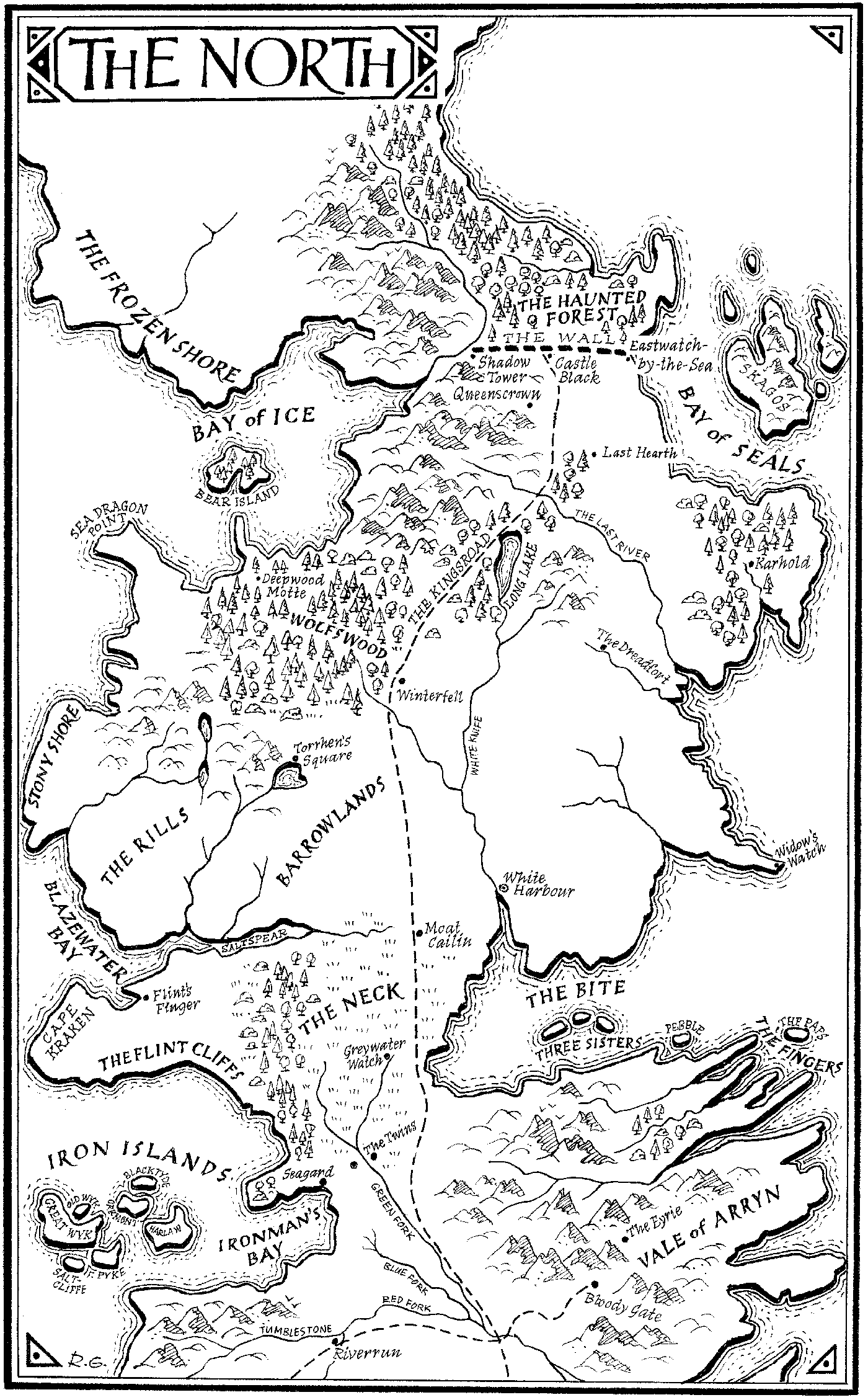
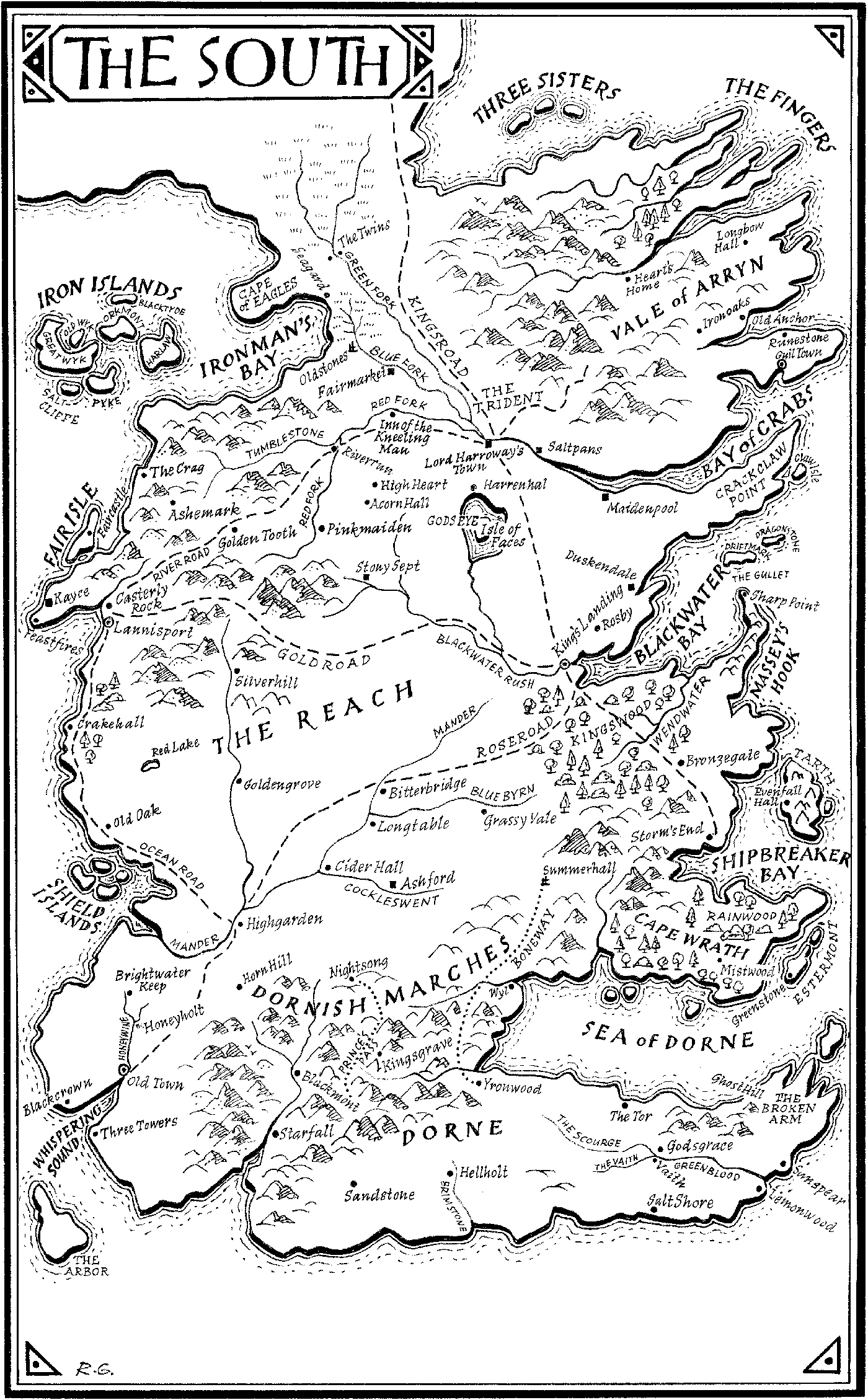
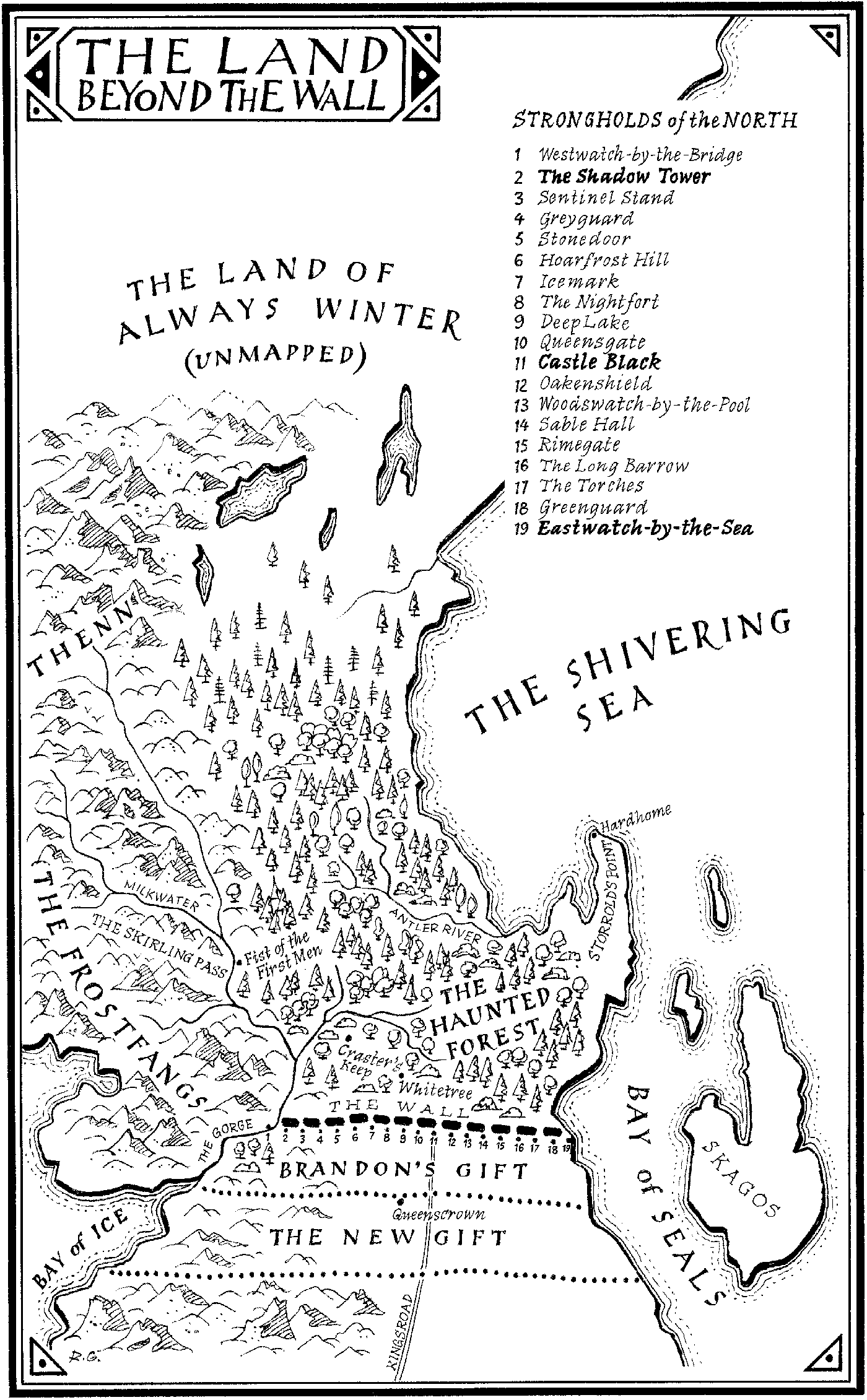
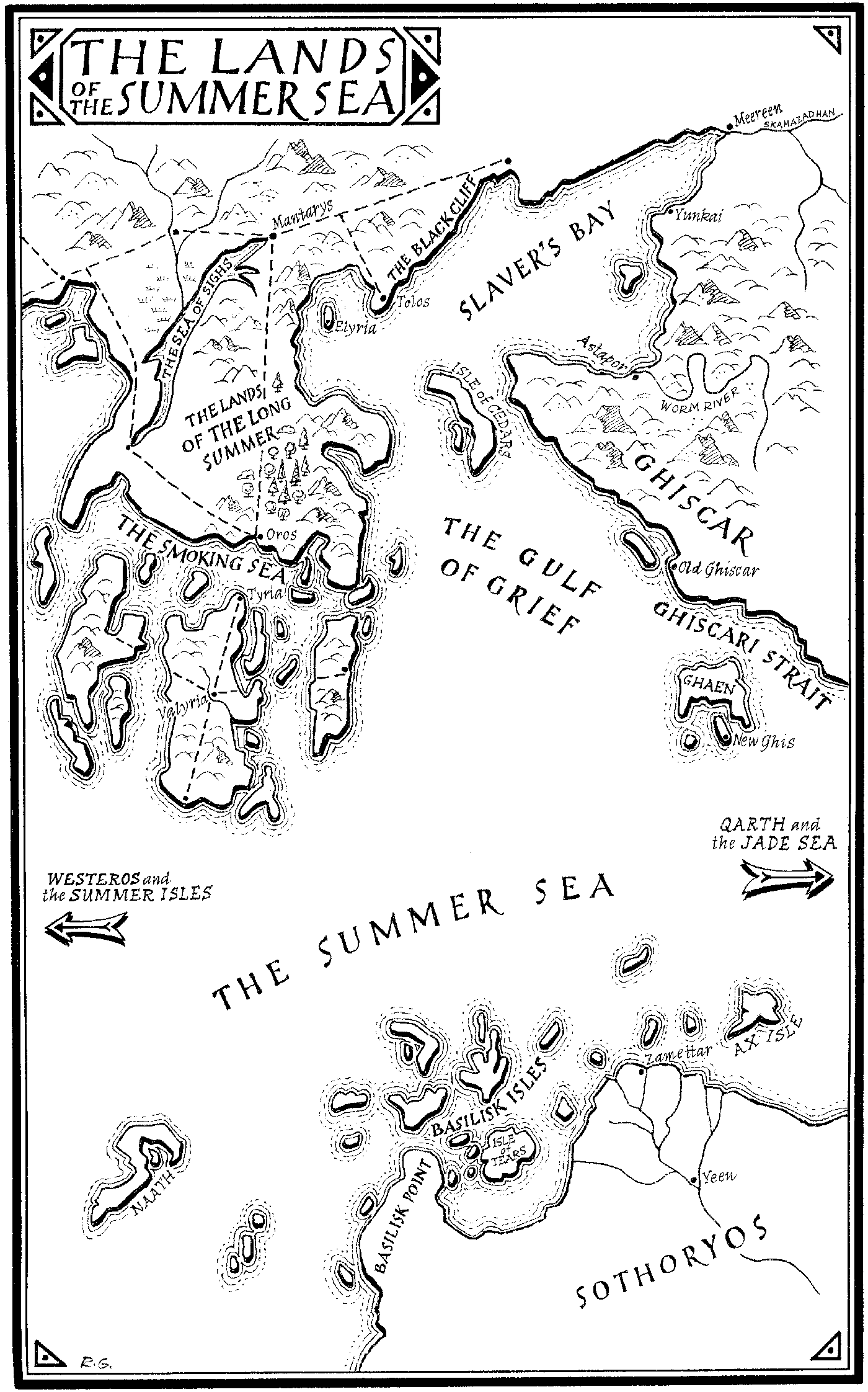
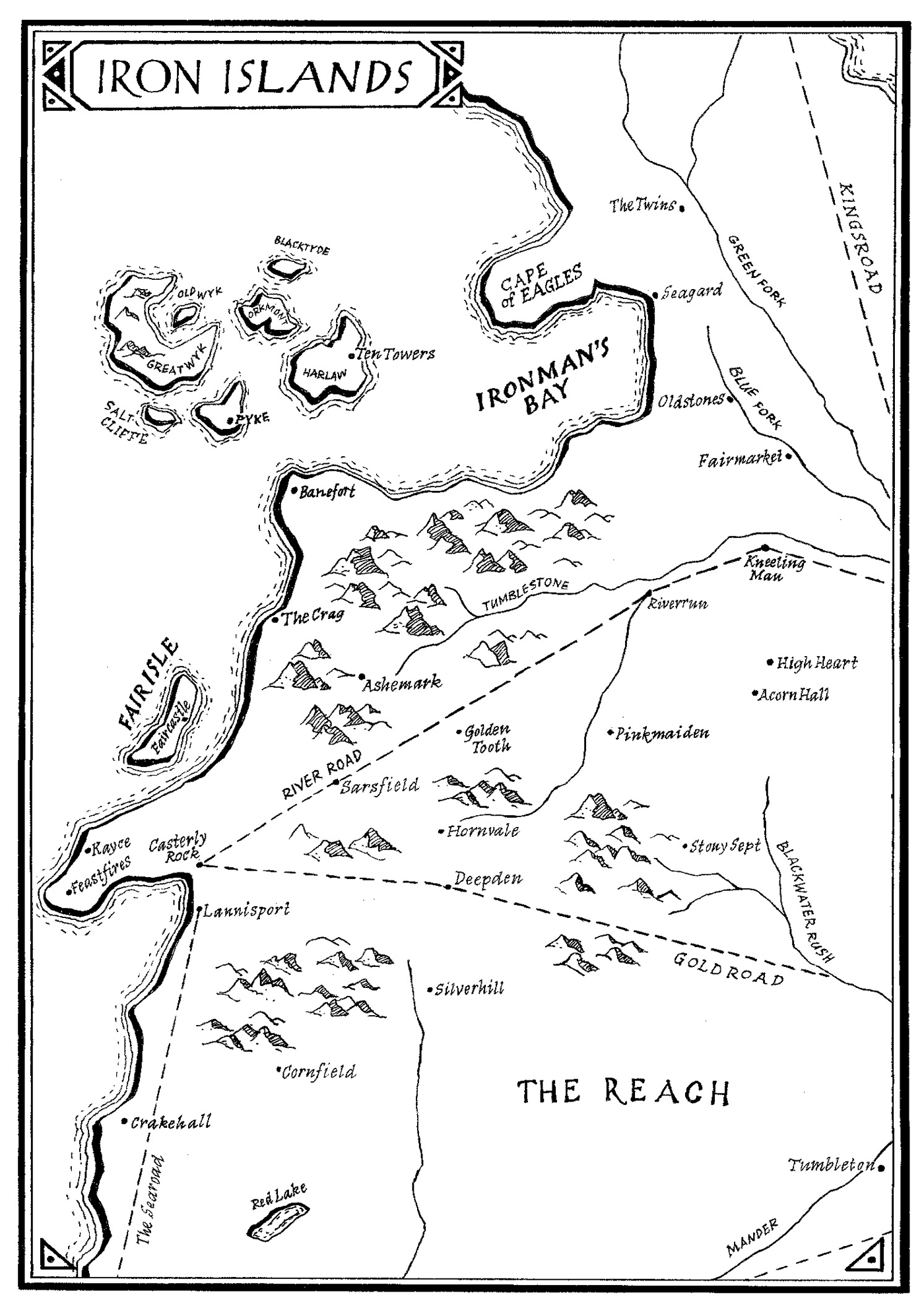
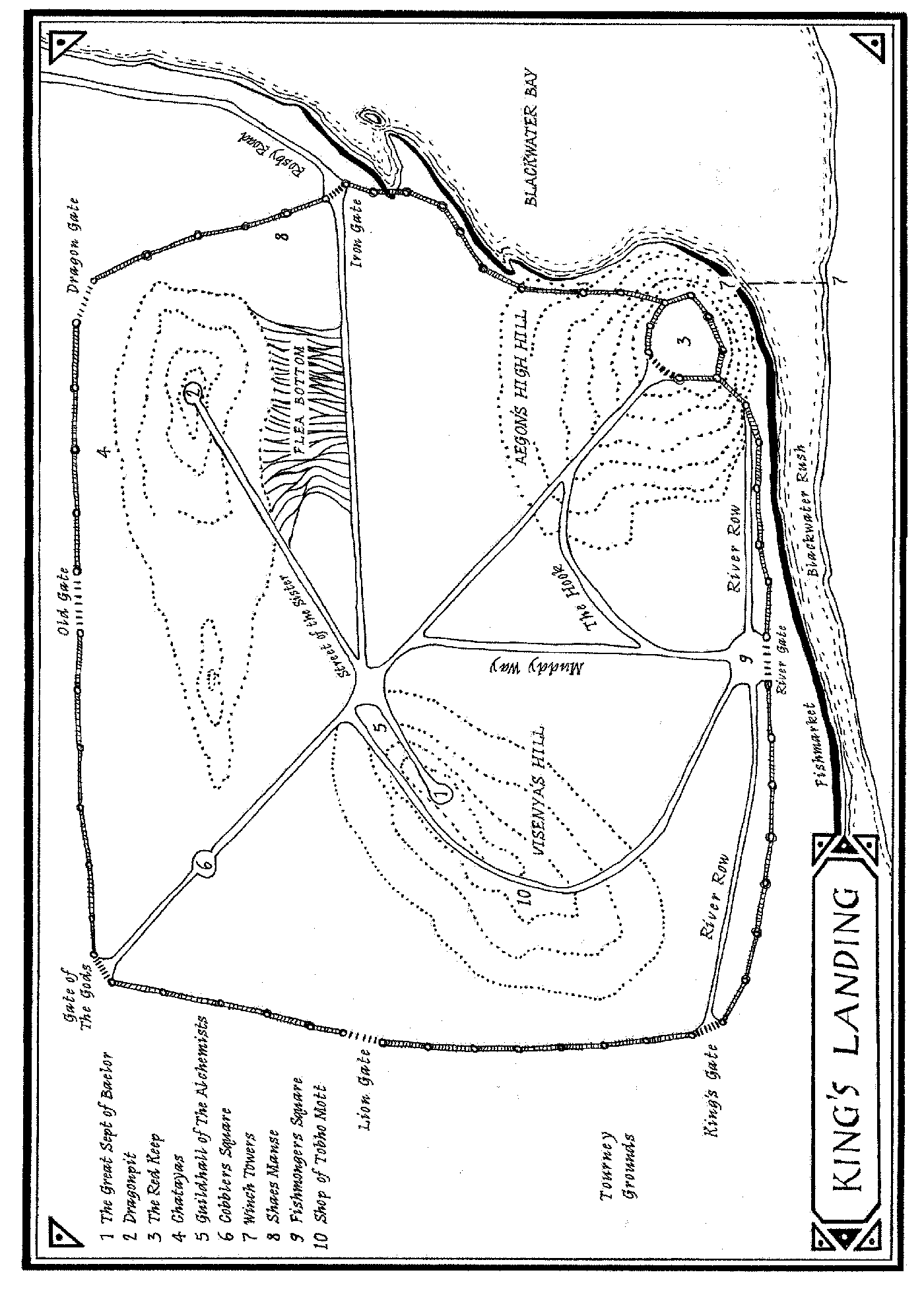
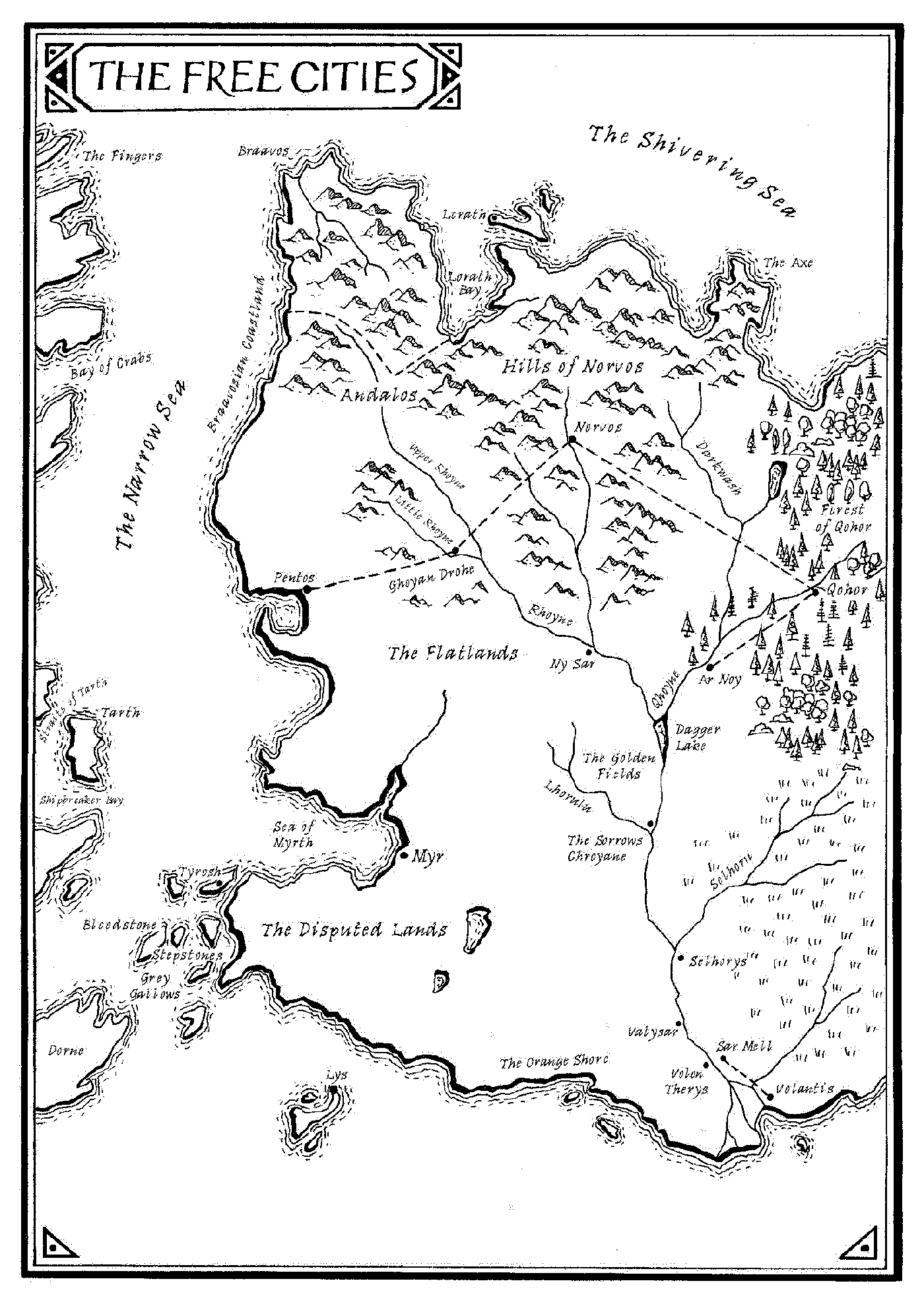
PROLOGUE
The night was rank with the smell of man.
The warg stopped beneath a tree and sniffed, his grey-brown fur dappled by shadow. A sigh of piney wind brought the man-scent to him, over fainter smells that spoke of fox and hare, seal and stag, even wolf. Those were man-smells too, the warg knew; the stink of old skins, dead and sour, near drowned beneath the stronger scents of smoke and blood and rot. Only man stripped the skins from other beasts and wore their hides and hair.
Wargs have no fear of man, as wolves do. Hate and hunger coiled in his belly, and he gave a low growl, calling to his one-eyed brother, to his small sly sister. As he raced through the trees, his packmates followed hard on his heels. They had caught the scent as well. As he ran, he saw through their eyes too and glimpsed himself ahead. The breath of the pack puffed warm and white from long grey jaws. Ice had frozen between their paws, hard as stone, but the hunt was on now, the prey ahead. Flesh, the warg thought, meat.
A man alone was a feeble thing. Big and strong, with good sharp eyes, but dull of ear and deaf to smells. Deer and elk and even hares were faster, bears and boars fiercer in a fight. But men in packs were dangerous. As the wolves closed on the prey, the warg heard the wailing of a pup, the crust of last night’s snow breaking under clumsy man-paws, the rattle of hardskins and the long grey claws men carried.
Swords, a voice inside him whispered, spears.
The trees had grown icy teeth, snarling down from the bare brown branches. One Eye ripped through the undergrowth, spraying snow. His packmates followed. Up a hill and down the slope beyond, until the wood opened before them and the men were there. One was female. The fur-wrapped bundle she clutched was her pup. Leave her for last, the voice whispered, the males are the danger. They were roaring at each other as men did, but the warg could smell their terror. One had a wooden tooth as tall as he was. He flung it, but his hand was shaking and the tooth sailed high.
Then the pack was on them.
His one-eyed brother knocked the tooth-thrower back into a snowdrift and tore his throat out as he struggled. His sister slipped behind the other male and took him from the rear. That left the female and her pup for him.
She had a tooth too, a little one made of bone, but she dropped it when the warg’s jaws closed around her leg. As she fell, she wrapped both arms around her noisy pup. Underneath her furs the female was just skin and bones, but her dugs were full of milk. The sweetest meat was on the pup. The wolf saved the choicest parts for his brother. All around the carcasses, the frozen snow turned pink and red as the pack filled its bellies.
Leagues away, in a one-room hut of mud and straw with a thatched roof and a smoke hole and a floor of hard-packed earth, Varamyr shivered and coughed and licked his lips. His eyes were red, his lips cracked, his throat dry and parched, but the taste of blood and fat filled his mouth, even as his swollen belly cried for nourishment. A child’s flesh, he thought, remembering Bump. Human meat. Had he sunk so low as to hunger after human meat? He could almost hear Haggon growling at him. “Men may eat the flesh of beasts and beasts the flesh of men, but the man who eats the flesh of man is an abomination.”
Abomination. That had always been Haggon’s favorite word. Abomination, abomination, abomination. To eat of human meat was abomination, to mate as wolf with wolf was abomination, and to seize the body of another man was the worst abomination of all. Haggon was weak, afraid of his own power. He died weeping and alone when I ripped his second life from him. Varamyr had devoured his heart himself. He taught me much and more, and the last thing I learned from him was the taste of human flesh.
That was as a wolf, though. He had never eaten the meat of men with human teeth. He would not grudge his pack their feast, however. The wolves were as famished as he was, gaunt and cold and hungry, and the prey … two men and a woman, a babe in arms, fleeing from defeat to death. They would have perished soon in any case, from exposure or starvation. This way was better, quicker. A mercy.
“A mercy,” he said aloud. His throat was raw, but it felt good to hear a human voice, even his own. The air smelled of mold and damp, the ground was cold and hard, and his fire was giving off more smoke than heat. He moved as close to the flames as he dared, coughing and shivering by turns, his side throbbing where his wound had opened. Blood had soaked his breeches to the knee and dried into a hard brown crust.
Thistle had warned him that might happen. “I sewed it up the best I could,” she’d said, “but you need to rest and let it mend, or the flesh will tear open again.”
Thistle had been the last of his companions, a spearwife tough as an old root, warty, windburnt, and wrinkled. The others had deserted them along the way. One by one they fell behind or forged ahead, making for their old villages, or the Milkwater, or Hardhome, or a lonely death in the woods. Varamyr did not know, and could not care. I should have taken one of them when I had the chance. One of the twins, or the big man with the scarred face, or the youth with the red hair. He had been afraid, though. One of the others might have realized what was happening. Then they would have turned on him and killed him. And Haggon’s words had haunted him, and so the chance had passed.
After the battle there had been thousands of them struggling through the forest, hungry, frightened, fleeing the carnage that had descended on them at the Wall. Some had talked of returning to the homes that they’d abandoned, others of mounting a second assault upon the gate, but most were lost, with no notion of where to go or what to do. They had escaped the black-cloaked crows and the knights in their grey steel, but more relentless enemies stalked them now. Every day left more corpses by the trails. Some died of hunger, some of cold, some of sickness. Others were slain by those who had been their brothers-in-arms when they marched south with Mance Rayder, the King-Beyond-the-Wall.
Mance is fallen, the survivors told each other in despairing voices, Mance is taken, Mance is dead. “Harma’s dead and Mance is captured, the rest run off and left us,” Thistle had claimed, as she was sewing up his wound. “Tormund, the Weeper, Sixskins, all them brave raiders. Where are they now?”
She does not know me, Varamyr realized then, and why should she? Without his beasts he did not look like a great man. I was Varamyr Sixskins, who broke bread with Mance Rayder. He had named himself Varamyr when he was ten. A name fit for a lord, a name for songs, a mighty name, and fearsome. Yet he had run from the crows like a frightened rabbit. The terrible Lord Varamyr had gone craven, but he could not bear that she should know that, so he told the spearwife that his name was Haggon. Afterward he wondered why that name had come to his lips, of all those he might have chosen. I ate his heart and drank his blood, and still he haunts me.
One day, as they fled, a rider came galloping through the woods on a gaunt white horse, shouting that they all should make for the Milkwater, that the Weeper was gathering warriors to cross the Bridge of Skulls and take the Shadow Tower. Many followed him; more did not. Later, a dour warrior in fur and amber went from cookfire to cookfire, urging all the survivors to head north and take refuge in the valley of the Thenns. Why he thought they would be safe there when the Thenns themselves had fled the place Varamyr never learned, but hundreds followed him. Hundreds more went off with the woods witch who’d had a vision of a fleet of ships coming to carry the free folk south. “We must seek the sea,” cried Mother Mole, and her followers turned east.
Varamyr might have been amongst them if only he’d been stronger. The sea was grey and cold and far away, though, and he knew that he would never live to see it. He was nine times dead and dying, and this would be his true death. A squirrel-skin cloak, he remembered, he knifed me for a squirrel-skin cloak.
Its owner had been dead, the back of her head smashed into red pulp flecked with bits of bone, but her cloak looked warm and thick. It was snowing, and Varamyr had lost his own cloaks at the Wall. His sleeping pelts and woolen smallclothes, his sheepskin boots and fur-lined gloves, his store of mead and hoarded food, the hanks of hair he took from the women he bedded, even the golden arm rings Mance had given him, all lost and left behind. I burned and I died and then I ran, half-mad with pain and terror. The memory still shamed him, but he had not been alone. Others had run as well, hundreds of them, thousands. The battle was lost. The knights had come, invincible in their steel, killing everyone who stayed to fight. It was run or die.
Death was not so easily outrun, however. So when Varamyr came upon the dead woman in the wood, he knelt to strip the cloak from her, and never saw the boy until he burst from hiding to drive the long bone knife into his side and rip the cloak out of his clutching fingers. “His mother,” Thistle told him later, after the boy had run off. “It were his mother’s cloak, and when he saw you robbing her …”
“She was dead,” Varamyr said, wincing as her bone needle pierced his flesh. “Someone smashed her head. Some crow.”
“No crow. Hornfoot men. I saw it.” Her needle pulled the gash in his side closed. “Savages, and who’s left to tame them?” No one. If Mance is dead, the free folk are doomed. The Thenns, giants, and the Hornfoot men, the cave-dwellers with their filed teeth, and the men of the western shore with their chariots of bone … all of them were doomed as well. Even the crows. They might not know it yet, but those black-cloaked bastards would perish with the rest. The enemy was coming.
Haggon’s rough voice echoed in his head. “You will die a dozen deaths, boy, and every one will hurt … but when your true death comes, you will live again. The second life is simpler and sweeter, they say.”
Varamyr Sixskins would know the truth of that soon enough. He could taste his true death in the smoke that hung acrid in the air, feel it in the heat beneath his fingers when he slipped a hand under his clothes to touch his wound. The chill was in him too, though, deep down in his bones. This time it would be cold that killed him.
His last death had been by fire. I burned. At first, in his confusion, he thought some archer on the Wall had pierced him with a flaming arrow … but the fire had been inside him, consuming him. And the pain …
Varamyr had died nine times before. He had died once from a spear thrust, once with a bear’s teeth in his throat, and once in a wash of blood as he brought forth a stillborn cub. He died his first death when he was only six, as his father’s axe crashed through his skull. Even that had not been so agonizing as the fire in his guts, crackling along his wings, devouring him. When he tried to fly from it, his terror fanned the flames and made them burn hotter. One moment he had been soaring above the Wall, his eagle’s eyes marking the movements of the men below. Then the flames had turned his heart into a blackened cinder and sent his spirit screaming back into his own skin, and for a little while he’d gone mad. Even the memory was enough to make him shudder.
That was when he noticed that his fire had gone out.
Only a grey-and-black tangle of charred wood remained, with a few embers glowing in the ashes. There’s still smoke, it just needs wood. Gritting his teeth against the pain, Varamyr crept to the pile of broken branches Thistle had gathered before she went off hunting, and tossed a few sticks onto the ashes. “Catch,” he croaked. “Burn.” He blew upon the embers and said a wordless prayer to the nameless gods of wood and hill and field.
The gods gave no answer. After a while, the smoke ceased to rise as well. Already the little hut was growing colder. Varamyr had no flint, no tinder, no dry kindling. He would never get the fire burning again, not by himself. “Thistle,” he called out, his voice hoarse and edged with pain. “Thistle!”
Her chin was pointed and her nose flat, and she had a mole on one cheek with four dark hairs growing from it. An ugly face, and hard, yet he would have given much to glimpse it in the door of the hut. I should have taken her before she left. How long had she been gone? Two days? Three? Varamyr was uncertain. It was dark inside the hut, and he had been drifting in and out of sleep, never quite sure if it was day or night outside. “Wait,” she’d said. “I will be back with food.” So like a fool he’d waited, dreaming of Haggon and Bump and all the wrongs he had done in his long life, but days and nights had passed and Thistle had not returned. She won’t be coming back. Varamyr wondered if he had given himself away. Could she tell what he was thinking just from looking at him, or had he muttered in his fever dream?
Abomination, he heard Haggon saying. It was almost as if he were here, in this very room. “She is just some ugly spearwife,” Varamyr told him. “I am a great man. I am Varamyr, the warg, the skinchanger, it is not right that she should live and I should die.” No one answered. There was no one there. Thistle was gone. She had abandoned him, the same as all the rest.
His own mother had abandoned him as well. She cried for Bump, but she never cried for me. The morning his father pulled him out of bed to deliver him to Haggon, she would not even look at him. He had shrieked and kicked as he was dragged into the woods, until his father slapped him and told him to be quiet. “You belong with your own kind,” was all he said when he flung him down at Haggon’s feet.
He was not wrong, Varamyr thought, shivering. Haggon taught me much and more. He taught me how to hunt and fish, how to butcher a carcass and bone a fish, how to find my way through the woods. And he taught me the way of the warg and the secrets of the skinchanger, though my gift was stronger than his own.
Years later he had tried to find his parents, to tell them that their Lump had become the great Varamyr Sixskins, but both of them were dead and burned. Gone into the trees and streams, gone into the rocks and earth. Gone to dirt and ashes. That was what the woods witch told his mother, the day Bump died. Lump did not want to be a clod of earth. The boy had dreamed of a day when bards would sing of his deeds and pretty girls would kiss him. When I am grown I will be the King-Beyond-the-Wall, Lump had promised himself. He never had, but he had come close. Varamyr Sixskins was a name men feared. He rode to battle on the back of a snow bear thirteen feet tall, kept three wolves and a shadowcat in thrall, and sat at the right hand of Mance Rayder. It was Mance who brought me to this place. I should not have listened. I should have slipped inside my bear and torn him to pieces.


